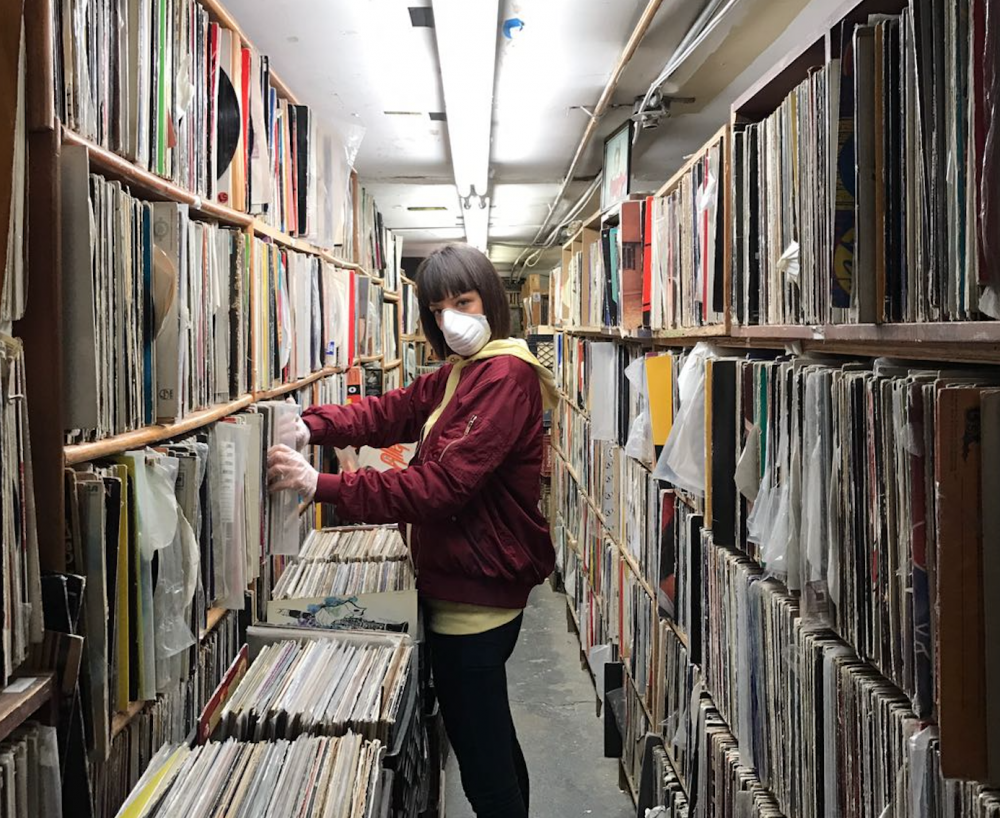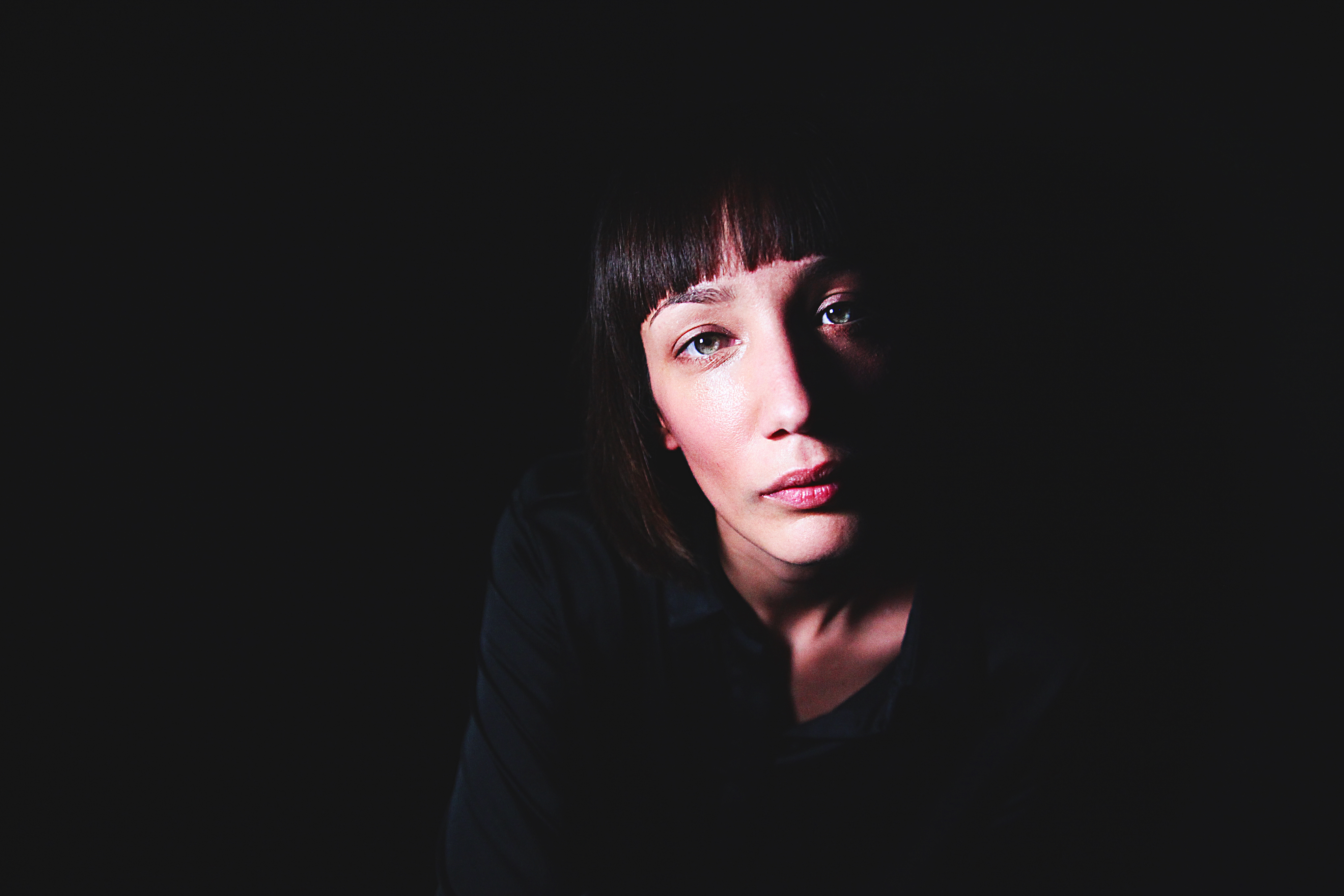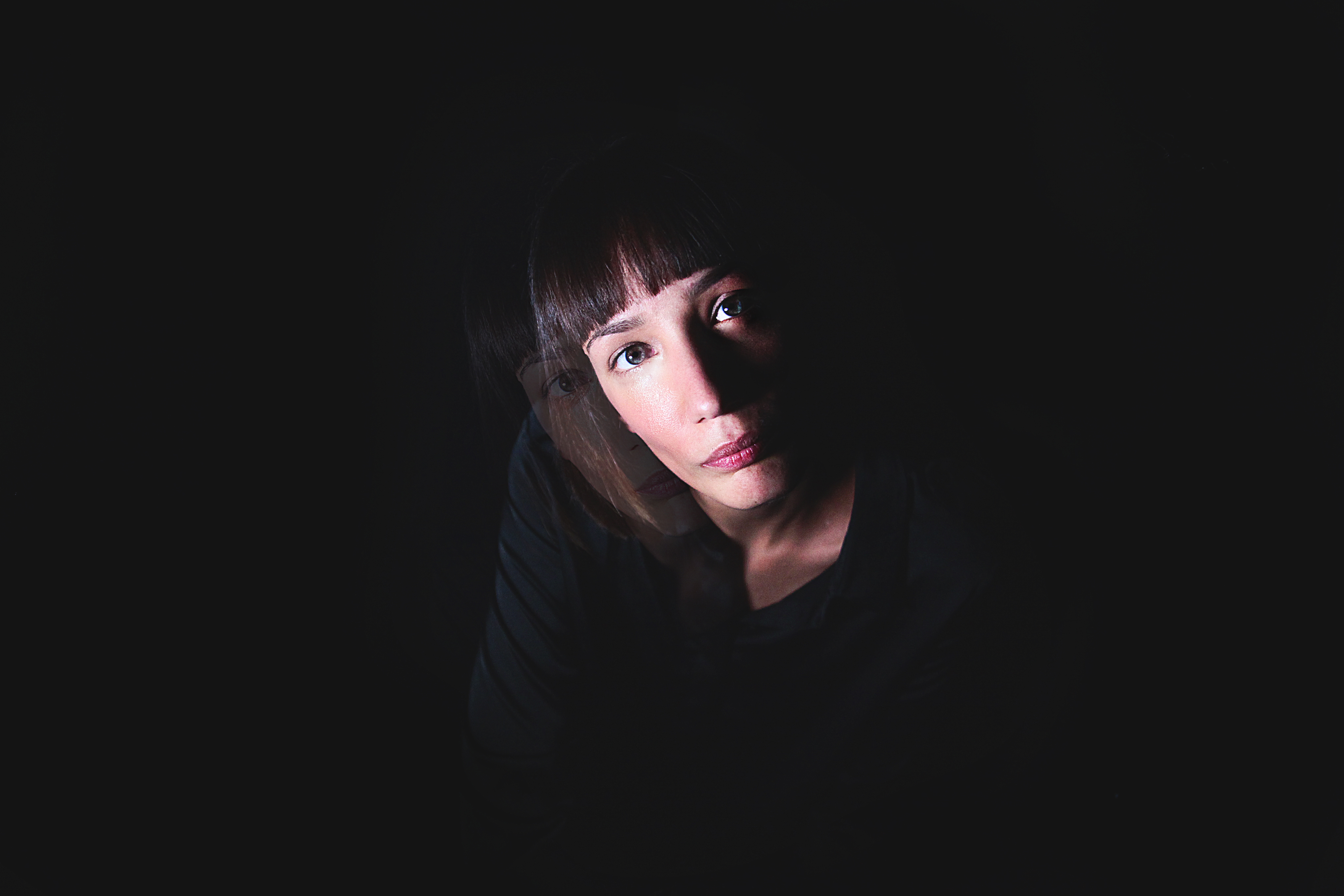Artist Tips: Janina
Drawing on experience, the Berlin-based artist offers her tips for young DJs looking to break through.

Artist Tips: Janina
Drawing on experience, the Berlin-based artist offers her tips for young DJs looking to break through.

Success certainly didn’t come easy for Janina. Born in the German capital, where she resides today, she grew up without the stability that family can offer: her parents divorced, fled, and left her under her Grandmother’s supervision at the age of just two. “I have never had any contact with them until now,” she says. “It was really difficult.” Supported, in part, by a circle of close friends and her Grandmother—with whom she lived until she found her own flat at the age of 15—she balanced her studies at a school in Kreuzberg with a growing affiliation with the city’s vibrant party scene, becoming a regular visitor at spots including Tresor and the Beatstreet parties. Soon, however, she dropped out of school to begin working a string of jobs—from restaurants to flyering—the most important of which was an unpaid placement at DNS Records to which she credits much her music knowledge today. “It was extremely important for me,” she says.
It was only natural, she explains, that she soon wanted to DJ too—and at the age of 16 she borrowed two turntables from Sammy Dee and taught herself to mix. “I never had any money so I couldn’t afford them myself,” she explains. Music, she adds, became her one comfort: “My fridge was always empty because I spent all my money on vinyl,” she says. “That was all that important to me.” Then, in need of her own decks and a mixer, she then “faked” some papers with the bank in order to get a line of credit: “It worked and I had my turntables,” she says, smiling. And then came a turning point: at the age of 18, she as invited to play her first set at Club der Visionäre, where she was subsequently offered a residency, and it was during her years on the Spree that she learned many “life lessons” and began to refine the sound and style she shares at many of Europe’s finest clubs today. “Gregor [Owner of the CDV] saved me life and showed me the way to go musically,” Janina says.
Now part of the renowned Solid AM booking agency, who identified her talents just over five years ago, and touring frequently across Europe, Janina talks about the challenges she faced with honesty and pride. In this edition of Artist Tips, she takes the time to explain the lessons she learned with a view to helping those aspiring DJs who are looking to break through today.
Janina will be performing alongside many of electronic music’s biggest names at this year’s Into The Valley event, taking place from June 20 to July 1 in Rummu, Estonia. More information and tickets can be found here. In addition to this, she will also be performing at Croatia’s Sonus Festival in August, alongside Binh, Rhadoo, and more. More information here.
Working on the side isn’t a bad thing…..
Lots of young artists today think that if they are working a job on the side of their DJing then people will not respect them because they are not yet a full-time artist. However, this not true; in fact, it can be very important for some artists to have a job on top of any DJ bookings and production commitments that they may have.
I have been in Berlin for a very long time and I have seen many artists come and go. When young artists arrive, I see how they behave—how they talk and how they think. They often say to me that they’re coming to Berlin to “play some gigs,” and that’s it—that’s all the do because the city allows for it. That’s all they fill their time with. From my experience, and after having spoken to other artists in the scene, people—be it promoters, fans or other artists—respect artists who are working hard and show that they are committed to their art. Working a job on the side so that you can buy new records or some new production equipment is a sign of commitment rather than a lack of success. It also offers more financial security, which can be important for the creative process. If someone is just sitting on the sofa and waiting for bookings to come in then you have to ask whether they are really committed to becoming a musician.
One of the others reasons that young artists feel that they “can’t” work a job alongside their DJing is because it will not leave enough time for them to focus on their music. But you cannot be record digging and doing music all the time; you need to have a balance in your life, even when you begin travelling more frequently, and often having something else in the week can give you a sense of accomplishment that will then give you a good energy for your music and everything else. Working a day job selling clothes for a few days per week is not going to stop you from developing your music—and you will also learn to use your time more efficiently, which is important. Working in a cafe, for example, can also give you a valuable social life if you’re spending a lot of time locked away in the studio.
From a personal standpoint, I did so many jobs while I was breaking through: I did some promoting, flyering, cleaning hotel rooms, working in restaurants, record stores, and all other sorts. When I started working with Solid AM, about four or five years ago, I was working in selling clothes to make a living—to pay rent, food, and to buy music—but I thought about quitting as soon as the gigs became more frequent. It was natural. After some time, I did quit and then the bookings dried up a bit—and I realized then that I should I have been more patient and that working a job while DJing can actually be helpful for me because it offers a balance in life and also financial security for some time. Once I realized this, I got another job and only recently did I quit that a few months ago because the travel and the musical commitments made working another job extremely difficult.
……especially if it’s in a record store
I worked at Berlin’s DNS Records store for about four years and this very important for me. It wasn’t about meeting other DJs; it was more about developing my musical education—and also having access to records before everyone else! I actually started on an unpaid internship a year and then they paid in records for some time after this.
A lot of DJs today don’t have a musical education. It’s just so easy to learn to mix records, and so there are so many artists who don’t have a deep and diverse musical knowledge. Indeed, it’s become so rare to meet a young artist with a good knowledge of electronic music and its history. But, as a DJ, it is your responsibility to know the history of music—to know where jazz comes from, to know who Jeff Mills is, and to know the background to techno, for example.
Working in a record store allowed me to develop this knowledge—and it can be a great way for young DJs to do the same. Being surrounded by this music for eight hours a day is a wonderful experience that is sure to develop your understanding of the wider musical spectrum; it really is the best job you can have as a developing DJ—if you are really into the music.
And beyond any responsibility, having this knowledge will have a great immediate on your DJing, too. It will change how you dig for records, how you mix records, and also your understanding for constructing a DJ set. When I began to know more about jazz, for example, my taste began to change, not to mention how I mixed and how I began looking for records. Before I understood jazz, I was stuck in playing one genre—I could never have imagined playing a set with a saxophone in, or something like that. Also, my transitions actually became a lot smoother; and I began lacing different genres of music into my sets—playing a more diverse set of records. It just developed me as a DJ. It’s that simple.

Try to find a residency (even if it’s small, to begin with)
Before I continue, I should be clear: I am not saying that you should be knocking on the doors of clubs asking to become a resident; rather, the point is that residencies can really be defining in a young DJ’s development. It’s important to have a place where you play regularly and feel comfortable, which will then allow you to mature and grow up musically. When I think what I played when I first started and what I play now, there is a big difference–and I put a lot of that evolution down to my residency at CDV.
I have been a resident at CDV for over 10 years—I started when I was 18 and I still hold it today, playing there regularly each and every week of the summer. I was young when I became a resident and only when I look back do I realize the impact that it had on my development. Having this family of people and artists—many of whom were more experienced than me—helped me to develop musically. I learned so many lessons there about music and life itself, and the regular gigs allowed me to grow up because I felt comfortable enough to try new things. In addition to this, it forced me to push myself; I was playing each week and so I had a reason to go record shopping because I couldn’t play the same music each time. It gave me a reason to go to work. It pushed me forward and gave me a real focus during my earlier years.
But don’t be pushy. Do your thing, focus on the music and keep an eye out for these opportunities.
Don’t be afraid to ask for help
Breaking through as a DJ is not easy, especially when you’re alone. During my earlier years, I was supported by people in the scene and outside of it, and it’s important to realize that accepting help is not a bad thing—because you can eventually help other people from that experience, too.
My experience is quite extreme. Growing up in Berlin 20 years ago was a very different prospect than what it is now, and I didn’t have a family to support me all the way. My parents left when I was very young and I moved in with Grandmother who was not in a position to offer me financial support—although she has played an extremely important role in my development. But I wouldn’t be here without the support of people in the scene and also outside of it. To give an example: Gregor at CDV gave me a musical direction and taught me a lot of things about life. Also, Sammy Dee lent me his turntables when I was 16 so I could practice mixing because I couldn’t afford my own.
To begin it, it was very difficult for me to accept help because I was always thinking that I needed to do everything by myself and that that is the only way for people to respect me. I never searched for help, because I had survived all my life by myself—but I learned to accept it when it was offered. You’re just not to go succeed if you do it all alone. Now, looking back, I am happy to tell the stories of Sammy lending me his turntables and stuff. It’s a priceless thing to get help from people who believe in you, especially when use it wisely and don’t take it for granted. It’s also nice to tell these story’s when these people see you growing up and you are still friends.
Don’t be too proud.

Focus on the music and the rest will follow
A lot of young artists focus on the success rather than on the music, but if you really focus on the music then the success will follow. This is very important. You cannot rush. If you rush things then you will not survive. If you meet a girl, for example, and you rush things then it was fall through. It’s the same with music: you have time, so be patient and let things happen—let things develop in their own time.
As I said before, it can be important to have a job so that you have reasonable security when it comes to money. But as a DJ or a musician, music should be your life. We all use social media—it’s become an important part of being an artist—but it should not affect you too much. The music is much more important than how many “likes” you have or what time you do a post on Facebook—but a lot of artists lose sight of this; they become so focused on other things and lose sight of actually developing themselves as artists. It really is true: if your music is good enough then people will find you, one way or another. So that’s where the focus should be.
It’s also not so important to waste time finding out what other artists are doing. If you’re really interested, call them and ask how they are, but don’t waste your time in stalking around on Facebook to get some news you don’t really need about others. Don’t compare yourself to them; instead, use this time and do music. Wake up in the morning, start slowly your day, and focus on your music
Also, if you have no gigs, it doesn’t mean you have nothing to do. Instead, use this time to go through all your records you have, check the old stuff you didn’t listen to and go on the internet to find new music—or go to the record store. Or watch some documentary about jazz music, rock, blues or electronic music. Develop your mind and your music will develop too. If it came easily then everyone would be doing it.
From a personal perspective, I was trapped in bad patterns for a long time but I then learned the important of using time wisely—and developing my knowledge of music without becoming distracted by irrelevant things.
Janina will be performing at Croatia’s Sonus Festival in August, alongside Binh, Rhadoo, and more. More information here.

